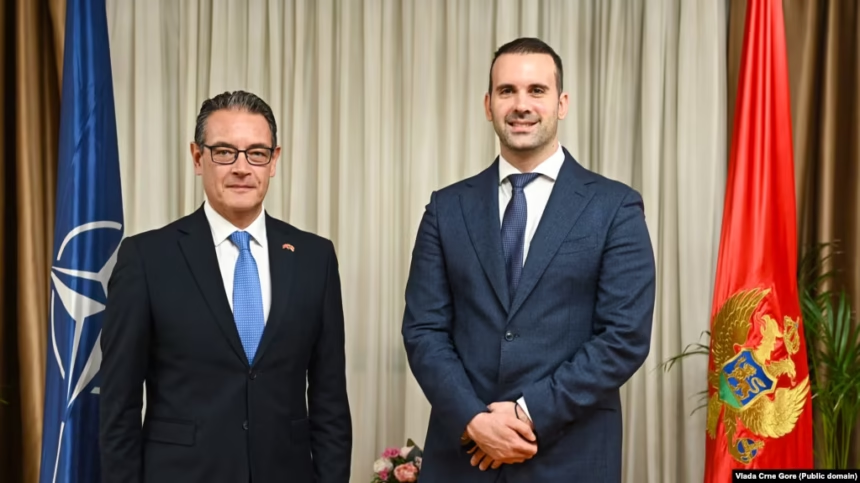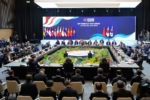The Government of Montenegro will terminate the visa-free regime for Turkish citizens starting Monday, following an emergency procedure, Prime Minister Milojko Spajić announced late Sunday on the social platform X.
“We will initiate intensive talks with Turkey to find the best model of cooperation and partnership, in the spirit of good relations and alliance,” Spajić stated, without explaining the reasons behind the decision.
Police Raid and Anti-Turkish Chants
At the same time, police in Podgorica’s Zabjelo neighborhood conducted a raid, detaining around 50 Turkish nationals, including two suspected of participating in a knife attack that left a Montenegrin citizen, identified as M.J., injured.
The altercation took place overnight between Saturday and Sunday in a local café.
During the arrests, crowds gathered, shouting anti-Turkish slogans and calls for violence, which police dispersed to prevent escalation.
Interior Minister Danilo Šaranović rejected rumors that 100,000 Turkish citizens currently reside in Montenegro, clarifying that there are 13,000 Turkish nationals in the country, of whom 80 hold permanent residence.
Earlier, opposition MP Milan Knežević claimed that “around 110,000 Turks” live in Montenegro, sparking political tension and public debate.
On Sunday evening, several police vehicles were stationed outside the Turkish Embassy in Podgorica for security reasons.
MP Boris Bogdanović, from the ruling Democrats, posted a photo of the arrests on Instagram with the caption: “We protect our country. We protect every home.”
Police to Verify Legal Status of Turkish Citizens
The Montenegrin Police confirmed that the detentions were linked to violent incidents over the past 24 hours involving Turkish nationals temporarily residing in Podgorica.
Authorities stated they will verify the legality of their residence and investigate whether any criminal activity occurred during their stay. Depending on the findings, residence permits could be revoked, and deportations may follow.
According to official police data, out of roughly 100,000 foreign residents in Montenegro, 13,400 are Turkish citizens, while Serbian and Russian nationals make up about 50,000 combined.
Montenegro previously lifted visa requirements for Turkish citizens — a policy the European Commission criticized, urging Podgorica to align its visa regime with that of the European Union, where Turks still require visas for entry.
President Milatović and Officials Condemn Violence
President Jakov Milatović strongly condemned the attack, calling for calm and restraint among citizens.
“I condemn the attack and urge all citizens to remain calm. There must be no collective blame or stigmatization of an entire people,” he said on X.
Milatović stressed that law enforcement must act decisively against hate speech and called for a more responsible immigration policy that is “firm against abuse and crime, but fair toward all who respect our laws.”
Deputy Prime Minister and Foreign Minister Ervin Ibrahimović also condemned the violence, emphasizing that guilt is individual, not collective.
“In a European Montenegro, there is no place for violence, vigilantism, or chants like ‘Kill the Turk!’ heard tonight in Podgorica,” he said, calling for an immediate institutional response.
The Bosniak Party, part of the ruling coalition, issued a statement urging authorities to investigate and punish all offenders, regardless of nationality.
“Montenegro must remain a country where violence is met with justice, not hatred — where institutions, not the streets, decide guilt,” the statement read.
Regional and Security Context
Religious leader Rifat Fejzić, head of the Islamic Community of Montenegro, linked the incident to strained relations between Belgrade and Ankara following Turkey’s delivery of weapons to Kosovo earlier this month.
“Less than 20 days later — is Belgrade punishing Turkey through Montenegro?” Fejzić wrote on X, referencing Serbian President Aleksandar Vučić’s criticism of Turkey’s role in the Balkans.
Montenegro’s 2024 SOCTA report on organized crime highlighted the increasing presence of foreign criminal networks, particularly Turkish, Georgian, and Russian groups, involved in drug trafficking, human smuggling, and money laundering.
The country currently tracks 11 high-risk organized crime groups, most with over 30 members, amid growing security challenges across the region.







